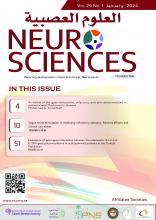Abstract
Objectives: To assess the effects of decompressive craniectomy combined with edaravone on the postoperative neurological functions and hemodynamics of patients with severe traumatic brain injury (STBI).
Methods: The subjects included totally 186 STBI patients admitted during January 2018 and January 2021. The random number table method was adopted to set an operation group (n=82) and a combined medication group (n=104) for the subjects. The changes of the clinical indicators were observed.
Results: Compared with the operation group, the combined medication group had higher Neurobehavioral Cognitive Status Examination score, Barthel index score, total response rate and heart rate (p<0.05). Besides, by contrast to those of the operation group, the mean arterial pressure, myocardial zymogram indicators, postoperative neurological function indicators and total incidence rate of complications of the combined medication group were reduced (p<0.05). In comparison with the operation group, the combined medication group exhibited raised ipsilateral contralateral blood velocities (p<0.05). Furthermore, the combined medication group had a better postoperative 1-year prognosis than the operation group (p<0.05).
Conclusion: Edaravone in combination with decompressive craniectomy benefits the postoperative improvement of neurological functions of STBI patients, effectively stabilizes the hemodynamics, induces few complications and improves the prognosis.
- Received July 6, 2023.
- Accepted October 2, 2023.
- Copyright: © Neurosciences
Neurosciences is an Open Access journal and articles published are distributed under the terms of the Creative Commons Attribution-NonCommercial License (CC BY-NC). Readers may copy, distribute, and display the work for non-commercial purposes with the proper citation of the original work.






